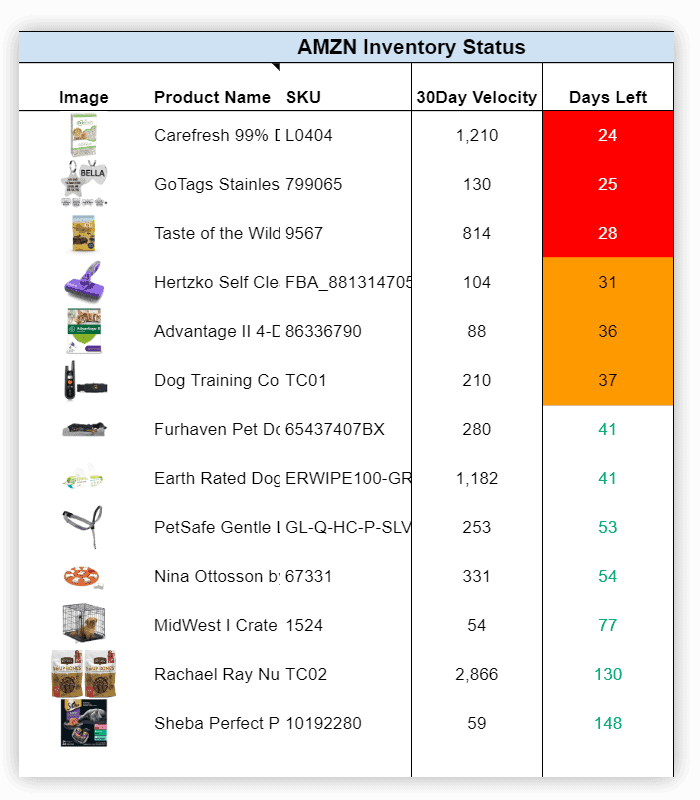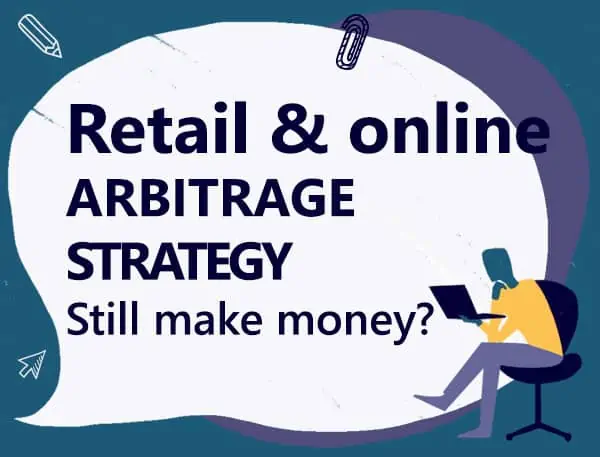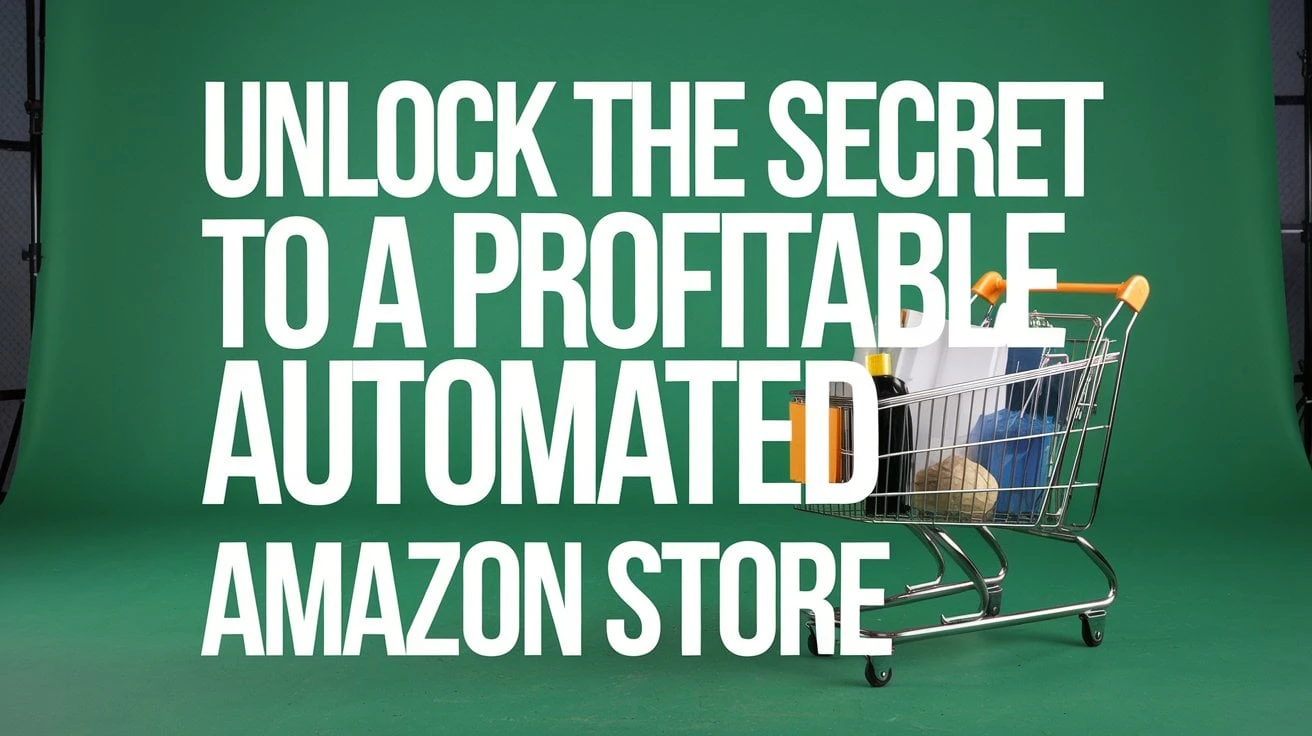What you’ll learn
Let’s talk about retail arbitrage on Amazon.
Unlike other ways to earn money on Amazon like wholesaling, private labeling, and drop shipping, the biggest advantage of retail arbitrage is that it is cheap and fast to start.
Let’s go through the retail arbitrage model, strategies, looking for profitable products, best sites for retail arbitrage, the best products to resell, and fees to be aware of.

What is retail arbitrage Amazon?
The definition of arbitrage is finding price discrepancies and then taking advantage of it.
Retail arbitrage is buying a product at a retail store and then selling it higher on Amazon. Online arbitrage is the same thing, but instead of going to physical retail store locations, you purchase items online. You can set up automated alerts, create bots to do the purchasing for you.
For instance, you purchase a clearance item for $5 from Walmart retail store and resell it on Amazon for a reasonable price of $20. Retail arbitrage sellers take advantage of retail price differential on two or more marketplaces. The process generally is to buy low and sell high on Amazon or an online store or online marketplace.
Retail arbitrage is legal. As per the first-sale doctrine, as far as you legally buy a product, you have the legal right to resell the product as you deem fit. But that doesn’t mean brands won’t come after you because they don’t know whether you are a legitimate distributor or not.
For all they know, you could be creating knockoffs and reselling it under their brand and listing.
How to do retail arbitrage on Amazon
It’s all about process and operations. There are hundreds of apps or tools you can rely on to help you determine profitable products that you can resell on Amazon to make good money.
Sourcing products
The good ol’ way of a road trip and visiting small towns with boutique stores is a great way to find deals. Items that you won’t come across in big box retail stores. These items can have a bigger profit margin because there is less competition, and even if the product has a low sales rank, it could be very profitable as you only need to sell a few with high markups.
If you use the Amazon seller app, it has a barcode scanner so that you can look up the selling price, profit margin, sales rank, and calculate whether the item is worth buying. If it takes 30 days to sell 1 item, then buy 3 or 4 and you’ll have 3 to 4 months of inventory for this unit. If you have higher sales rank requirements, then keep scanning with the Amazon seller app until you find discounted products or even at a higher price, as long as you know you can sell them.
The other method is to use data to your advantage. Pull up historical sales data, historical sales rank, pricing, reviews and other information you need to match your requirements to make it profitable selling online.
- at least 15 units sold in the last 30 days
- last 30 days sales rank
- price changes over past month
- current ratings and reviews
- profit margin
- fees
- current buy box price
- number of sellers competing for the buy box
- and so on
You can use all sorts of data points in a checklist, and then when something matches, you jump to buy those retail arbitrage products or through online arbitrage ASAP.
Source products through clearance sales, overstock, liquidations, bulk discount warehouses. There are creative ways to get products.
List your products on Amazon
When you have sourced your products, it’s time to list them on Amazon. The beauty with retail or online arbitrage is that you don’t have to take photos, create brand listings, product videos or other content.
No listing optimization required.
No Amazon SEO headaches.
Little to no PPC advertising is required because it will sell on its own so let someone else pay for all the advertising.
The listings already exist and you simply list your product and add yourself as another seller onto the listing.
Set the price and that’s it.
This is the beauty and simplicity of arbitraging products because most of the work comes from sourcing products. You’ll be competing for the buy box with other wholesalers and arbitrageurs, but it’s not the volume you are going for with retail or online arbitrage.

Monitor sales and forecast inventory
You’ll easily end up with 100+ listings. For retail / online arbitrage businesses, the name of the game is finding as many products as possible. You’ll have more SKUs than sales which is the opposite of private label, where it’s all about selling as few products as much as possible.
The more listings you have, you need a way to track sales analytics, and perform inventory management and forecasting.
Most arbitrageurs are *cough* cheap, and will try to do things by hand, on their own. This is a huge mistake. Let software and automation do the hard work so that you can keep sourcing products and knowing what your best sellers are.
Software like Gorilla ROI Google Sheets Data Connector can load all your Amazon data into a Google spreadsheet and update it with the latest numbers.
This way, you can source products with higher sales rank, high profit margin, and focus on finding the best retail arbitrage products.
Here’s a look at how you can automate and create dashboards that provide actionable insights of what to focus on.

Where to source products
While there are retail stores you can turn to when buying products, you need a store that guarantees authentic and profitable products. Some of these stores include, but are not limited to:
- Ross
- Marshalls
- Walmart
- Kohl’s
- Target
- TJ Maxx
- Burlington
- Homegoods
- Grocery stores
- CVS/Walgreens/Rite Aid or other convenience stores
- Dollar General or other dollar stores
- Dick’s Sporting Goods
Like our content? Follow our journey to reach $10M in sales
We share our real failures, wins, and what we are doing on our journey from $0 to $10M in sales.
Best products to resell on Amazon
So what are the best products to sell?
Some of the top categories that have proven to be profitable for retail arbitrage sellers are:
- Beauty & Personal Care
- Home & Kitchen
- Books
- Toys & Games
- Grocery & Gourmet Food
- Office Products
- Kitchen & Dining
- Health, Household, & Baby
- Pet Supplies
Remember that not all goods are eligible for reselling on Amazon, so ensure the products you intend to resell are not hazmat or restricted.
Fees to be aware of as a retail arbitrage seller
As a retail arbitrage reseller, there are a couple of fees you should be aware of upfront before venturing into this business model.
We have a massive guide dedicated to Amazon seller fees and explaining every item.
The big ones for now are:
FBA or shipping costs
Whether you decide to use Amazon FBA or not, you will still deal with storage fees and shipping costs, especially when you are handling everything on your own. Then if you decide to use Amazon FBA, where Amazon will be in charge of shipping and storage, expect to pay Amazon for this service.
Amazon fees
There are so many ways through which Amazon makes money from third-party sellers. One of them is charging retail arbitrage sellers what is known as Amazon fees. Whether you use the FBA route or not, you will still have to deal with Amazon fees; so keep this in mind when figuring out pricing for your products.
Seller apps
While the Amazon Seller App is free of charge, if you want a more personalized or advanced feature from a Seller app, you may have to pay a fee to use one of the leading apps on the market. The cost varies depending on the app you settle for.
Pros of retail arbitrage
Here is why you should start selling on Amazon using the retail arbitrage business model:
#1. Low-cost startup
Unlike private label or wholesale that require investing a substantial amount of money at startup, you can get started with the retail arbitrage business model with little starting capital. I have seen experienced sellers use the retail arbitrage route to scale their business to over $10,000 monthly. To start retail arbitrage, you only need a few hundred dollars and a free Amazon Seller Central account.
#2. Flexible schedule
Amazon retail arbitrage comes with a flexible schedule. Decide when and how to search for products, optimize your listing, and promote your listing. You can even decide to run this business as a full-time gig.
#3. Low risk, high ROI
While retail arbitrage has some level of risk, the risk cannot be comparable to other business models. Once you learn how to source profitable products, the risk involved in retail arbitrage will be drastically mitigated. Additionally, retail arbitrage comes with a high ROI. Finding products that will give you 50% more returns is not difficult, and the ROI is incredible!
Cons of retail arbitrage
#1. Time-consuming
As with every other business endeavor, retail arbitrage on Amazon has its drawbacks.
Retail and online arbitrage sourcing is time consuming. Visiting store after store, or websites or creating bots to automate process is a time intensive process. You trade time for sales.
#2. Not scalable
It’s a great little side income business. You can get to 6 figures with a LOT of work, but you will never get to 7 figures.
#3. Legal issues
Lots of people ask if retail arbitrage is legal. It is, but that doesn’t stop brand owners, and other sellers filing cease and desist letters or IP infringement claims against you.

Tips to successfully sell through retail arbitrage
You must adhere to some tips to successfully sell and make money through the retail arbitrage business model. Some of these tips include:
#1. Follow trends and sell seasonal products
One strategy to help you make money all year round is to follow trends and sell seasonal products. You can search for seasonal products by scanning retail stores for profitable products to resell on Amazon. Alternatively, you can figure out soon-to-be trending products or products currently selling during a certain time of the year. For example, inflatable pools are usually in high demand during summer. Also, toys are likely to be profitable when you sell them during the holiday season.
#2. Sell discontinued products for massive profits
Selling discontinued products or products that are very difficult to find is also a great way to make so much money through the Amazon retail arbitrage business model. Some consumers are ready and willing to part with a huge sum of money for a product they need, but for some reason, the brand decided to discontinue producing such products. You can find discontinued products in discount retail stores, retail stores, and even some grocery retail stores. It is up to you to do your search in the right store.
#3. Be patient
Venturing into retail arbitrage requires patience. Sourcing profitable products from one store to the other can be exhausting and overwhelm you if you are not patient enough. The process can even become more frustrating if you cannot find a profitable product to resell on Amazon. So, to succeed in this business model, you need to exercise patience. Eventually, as you become more experienced in the business, you will find profitable products that you can resell on Amazon to make money.
#4. Pick products from the proper category
It is not enough to open a storefront on Amazon to resell unprofitable products, and you will lose your hard-earned money. So when you hit an eCommerce store to buy products you will resell on Amazon, make sure you pick goods from the product category. I already mentioned profitable categories to start with, and the popular ones include toys, books, games, and home & kitchen.
#5. Start small to get used to the process.
Before you invest a huge sum of money into the retail arbitrage business model, you must start small to understand the business model and know the right strategy to deploy at every point. Starting small will help you better understand where to source products, price your inventory, optimize your listing to capture your audience’s attention and more.

Frequently asked questions
Is retail arbitrage allowed on Amazon?
Certainly, retail arbitrage is allowed and legal on the Amazon Marketplace. So, if you have a supplier or a merchant where you can get products at a cheaper rate to resell on Amazon, then it is time for you to start your retail arbitrage business.
Is retail arbitrage allowed on Amazon?
Certainly, retail arbitrage is allowed and legal on the Amazon Marketplace. So, if you have a supplier or a merchant where you can get products at a cheaper rate to resell on Amazon, then it is time for you to start your retail arbitrage business.
Is Amazon arbitrage still profitable?
Amazon arbitrage is still very much profitable as other business models. I have seen situations where those who engage in retail arbitrage make between $500 and $5000 monthly. If you deploy technology to assist you in the business, you can make above this amount every month.
How does Amazon retail arbitrage work?
Amazon retail arbitrage is simple. The process involves looking up products on third-party platforms like Walmart, eBay, or AliExpress, then reselling the same product on the Amazon marketplace for a profit. The difference in the product price on these third-party e-commerce platforms and Amazon is known as retail arbitrage.
Can you make money with retail arbitrage?
Yes, you can make money doing retail arbitrage on Amazon. However, it would help if you concentrated your strategies on finding cheaper products on third-party platforms to resell. If you can get a manufacturer or supplier where you can buy bulk products at a fairly cheaper rate, then we will make money with retail arbitrage.
Comments
Related Posts
Mastering Shopify’s UTMs: The Simple Way to Smarter Marketing
Let’s be honest: marketing your Shopify store without tracking what’s…

10 Profitable Product Categories for Amazon Affiliates 2025
What you’ll learn Amazon is a favorite for experienced and…

Unlock the Secret to a Profitable Automated Amazon Store: How to Build a Hands-Free Income Stream
Ever dreamed of running a profitable Amazon business while sipping…







Leave a Reply